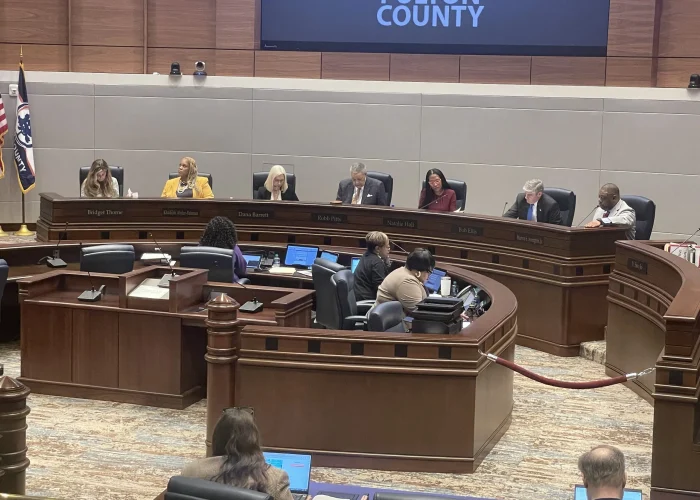Yesterday, May 27th, the U.S. Environmental Protection Agency unveiled their new clean water rules, which on the surface appears to only affect streams and wetlands, but in reality, has the potential to allow for a broad overreach of powers by the Agency.
Council Members will recall that last fall, a coalition of interests, representing Georgia’s Regulated Communities and Conservation Organizations, met at the Georgia State Capitol before a Joint House and Senate Committee to discuss the federal Environmental Protection Agency (EPA) and the U.S. Army Corps of Engineers proposal of the now released rule, which we felt expanded regulatory jurisdiction over waters throughout the United States. The coalition included representatives from the Metro Atlanta Chamber of Commerce, Georgia Farm Bureau, Georgia Municipal Association, and Georgia Department of Agriculture The EPA, through regulatory powers has changed the definition of “Waters of the United States” under the “Clean Water Act” (CWA) and has caused much debate throughout Georgia’s various industries. This is in addition to the over 1,000,000 comments nationally the EPA received during their comment period, regarding the change in definition, with a vast majority in opposition or requesting modifications to the proposed rule.
The Council submitted our concerns to the EPA during the comment period, which can be found HERE. Additionally, the Council provided Congressman Rob Woodall, with our concerns on the impact of the proposed rule, which he referenced at a joint hearing between the Senate Environment and Public Works and the House Transportation and Infrastructure Committees discussion on the then-proposed rule in February. You can view Congressman Woodall’s concerns and the Council for Quality Growth’s concerns HERE.
According to the EPA Press Release, the new rule:
- Clearly defines and protects tributaries that impact the health of downstream waters;
- Provides certainty in how far safeguards extend to nearby waters;
- Protects the nation’s regional water treasure;
- Focuses on streams, not ditches;
- Maintains the status of waters within Municipal Separate Storm Sewer Systems; and
- Reduces the use of case-specific analysis of waters.
Also, according to the EPA, a Clean Water Act permit is only needed if a water system is going to be polluted or destroyed. They claim the new rule will not:
- Protect any types of waters not historically covered by the Clean Water Act;
- Add any new requirements for agriculture;
- Interfere with or change private property rights;
- Regulate most ditches;
- Change policy on irrigation or water transfers;
- Address land use;
- Cover erosional features such as gullies, rills and non-wetland swales; and
- Include groundwater, shallow subsurface flow and tile drains.
Their full explanation by the EPA of what the rule will and will not cover can be found HERE. However, we believe there are a number of dangerous elements within the rule that are damaging to the development and economic development industry, despite the statements made in the press release.
While we believe the protection of our nation’s water systems is important to a vibrant economy and quality growth, our concerns remain the same as before, that the rule will modify existing regulations and encumber the rights of the development community with a broad overreach of power by the EPA. The Council will review the full details of the Rule, (which does not take effect until 60 days after publishing in the Federal Register) and provide analysis from top Council Members.
However, there is still hope this rule will be struck down by way of Congressional legislation. Introduced by Congressman Bill Shuster, Chairman of the House Transportation & Infrastructure Committee, House Resolution 1732, passed by the United States House on a 261-155 vote on May 12th and now resides in the Senate that would require the administration to withdraw this rule, and go back and propose a new rule developed in a consultative fashion with states, local governments, and stakeholders. A full background on the Resolution can be found HERE. While the legislation is expected to pass in the Senate, the likelihood is the President will veto the legislation and the votes to override the veto are not in either Chamber. Other avenues for passage include attaching the House language to the appropriations bill that is now in the Senate and sending it to the President’s desk as part of a funding package.
The Council will continue to keep our Members informed as the legislation continues throughout the process and will be submitting letters of support to members of the United States Senate, encouraging them to pass House Resolution 1732 and stop this broad power grab by the United States Environmental Protection Agency and require the Agency to come back to the table and meet with those who will be most affected by this change. Look for a full Council analysis on the rule in next week’s “Priorities of the Week.”





